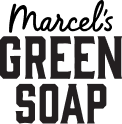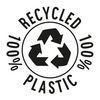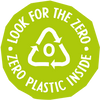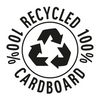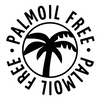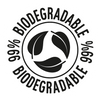The plastic soup: you've probably heard of it. A large floating mass of plastic waste drifting in the northern part of the Pacific Ocean. And although the problem has been known for a long time, a significant amount of plastic still ends up in the ocean every hour, enough to fill 11 Olympic-sized swimming pools. This needs to change. That's why we're teaming up with World Animal Protection to combat the plastic soup. And you can join us too! In this article, you'll learn how.
Plastic is everywhere
Unfortunately, the plastic problem isn't limited to the plastic soup alone: many other areas are plagued by large concentrations of plastic waste. Take a walk along any beach in the world, and you'll see how big the problem is. You'll find washed-up plastic packaging everywhere: from bottles and other disposable items to lost and discarded fishing nets and lines.
Over the past years, the amount of plastic waste has only increased. And it's highly likely that the plastic that's already in the ocean will linger for centuries. Plastic takes a long time to break down. Fishing gear is designed to be strong and durable, and it doesn't degrade quickly in the sea. Lost nets can remain "ghost fishing" for up to 600 years and are extremely dangerous to marine life. According to the World Wildlife Fund, 11 million tons of plastic flow into the oceans each year.
Threat to marine animals like whales
With all that plastic and leftover fishing gear, we're causing a lot of harm to the rich marine life. Sea creatures like whales can starve to death after ingesting plastic. The plastic gives them a feeling of fullness, causing them to eat less, receive less energy, weaken, or even die. The news of a dead whale washing ashore with over 40 kilograms of plastic bags in its stomach shocked the world. According to the World Wildlife Fund, 56% of whale and dolphin species have ingested plastic.
"Each year, hundreds of thousands of whales, seals, turtles, and birds are entangled, injured, or mutilated by floating plastic in our oceans." - World Animal Protection
In addition to the animal suffering caused by plastic waste, we're also harming ourselves. Whales are an important factor in protecting our climate. Whale feces is food for plankton, and plankton converts vast amounts of CO2 into oxygen. Whales also store carbon in their bodies, which sinks to the ocean floor when they die.
What can you do?
It's expected that plastic production will only increase, making the plastic problem in the oceans and thus the threat to marine life even greater. How can we put an end to this?The answer is simpler than you might think: produce and use less plastic, and handle it more responsibly. This requires action from companies and governments through policies and laws, but you can also help combat ocean waste. Every little bit helps. For example, use a reusable water bottle, coffee cup, and bag instead of single-use plastic. Shop package-free at the market, through online supermarkets like Pieter Pot, or Albert Heijn's new packaging-free concept. Join or organize a beach cleanup. And switch to plastic-free products like shampoo bars, body bars, and deodorant sticks as much as possible. If this is still a step too far for you, make sure you buy products in 100% recycled packaging.

